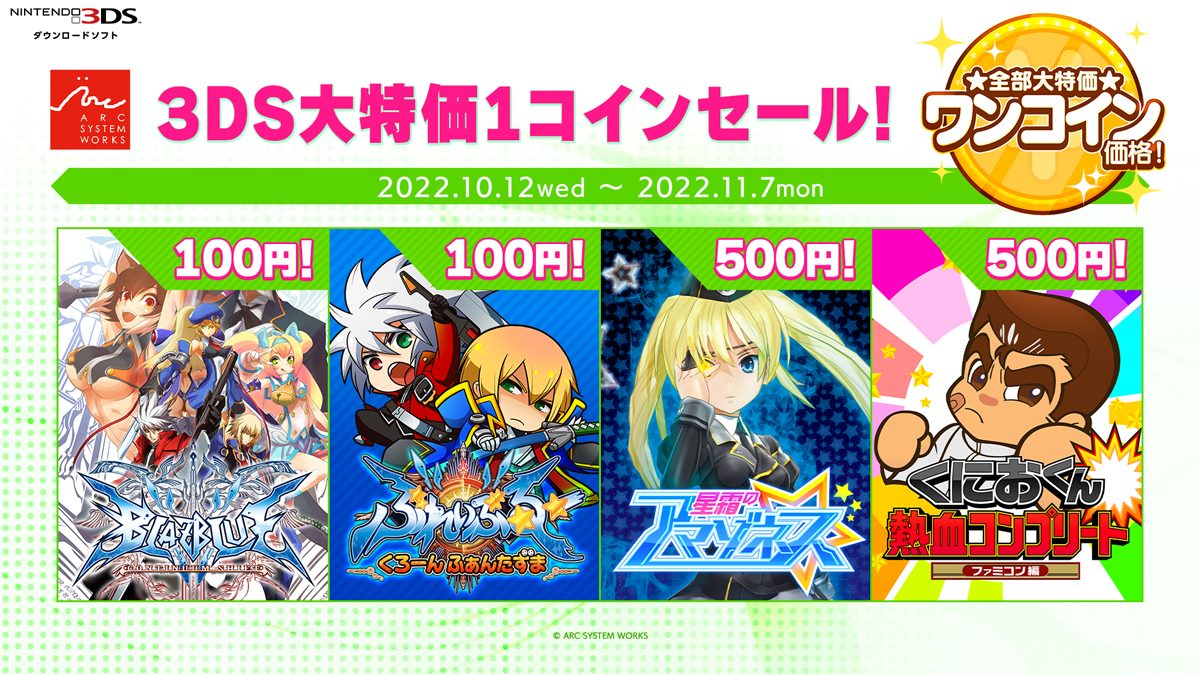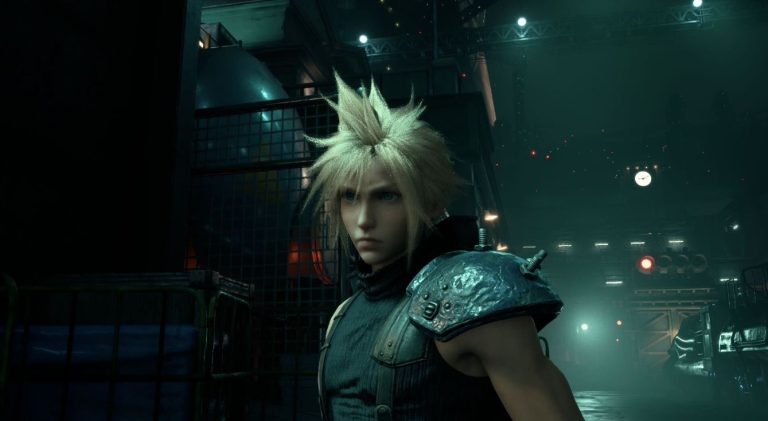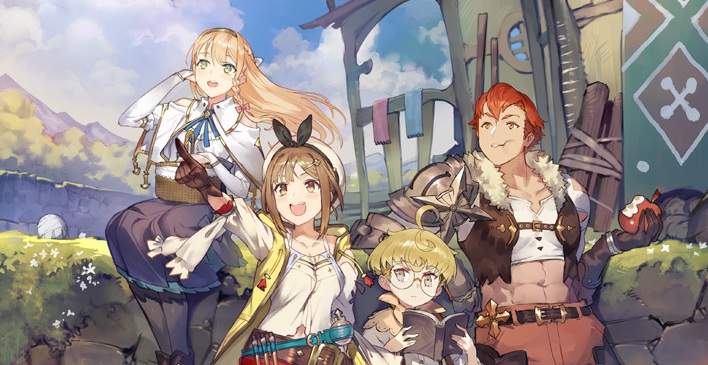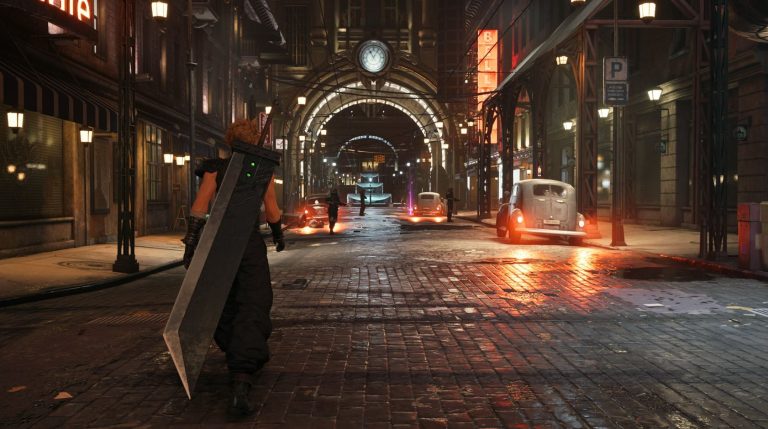As the March 2023 closing of the Nintendo 3DS eShop draws ever closer, the company that comes to the minds of many gamers in Japan when they think about download-only titles on the platform is Arc System Works.
Arc System Works is a proven fighting game developer known for series like Guilty Gear and Blazblue. However, the company has also put out a lot of smaller scale download-only titles, including 87 on the 3DS alone. Just why has Arc System Works released so many downloadable games on the 3DS? We spoke with staff members at the company who work on their downloadable titles to find out.
*This article is an excerpt from an interview posted to AUTOMATON’s Japanese edition
From Arc System Works:
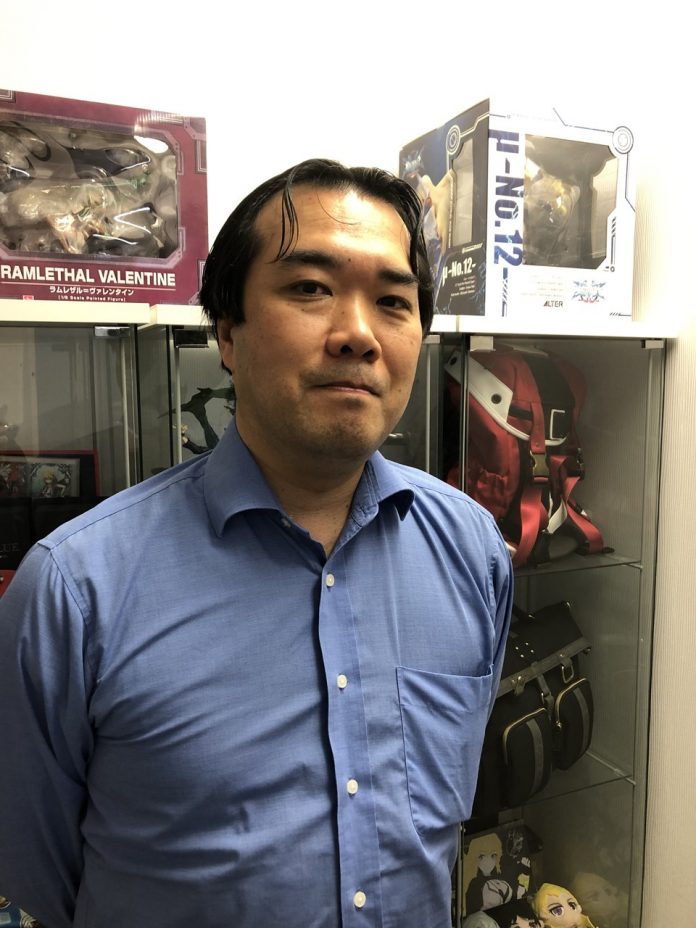
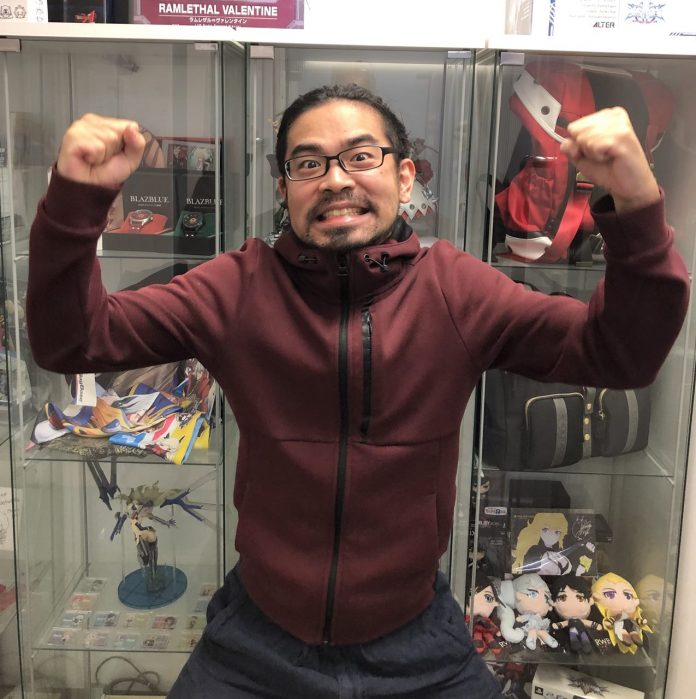
Interviewer:

Futaba Raayu: A game blogger with a career spanning over 15 years. Known for their pursuit of the Simple series and downloadable games.
Why did they release so many download-only titles on the 3DS?
――Arc System Works has 87 downloadable titles available on the 3DS alone. Why did you put so much effort into releasing downloadable games on the platform?
Shimada:
Since the Wii era, Arc System Works has taken the initiative to put out downloadable games, so it wasn’t so much any special effort but a continuation of what we had been doing. However, we may have been able to put out so many games because of the merits of the 3DS. Development was cheaper compared to now, so it was easier to take on challenges. The risk reward balance was excellent.
On top of that, I think the 3DS hardware did a lot to popularize downloadable software in Japan. When the 3DS launched, games were still mostly bought physically, but with the 3DS, it was the first time on Nintendo hardware that regular releases could be bought digitally. I think Nintendo also put a lot of effort into making it hardware good for selling downloadable games which meshed well with our plans.
Of course, it wasn’t just the 3DS. I think it was also a result of in-app purchases and subscription services increasing which got people used to the idea of spending money on these kinds of digital services. Because the culture of buying downloadable games on the 3DS had spread among users, the market was lively and putting out games resulted in sales. For that reason, we continued putting effort into it.
Yamada:
The 3DS came out just as feature phones were being replaced by smartphones. What also happened was that more people were setting up Wi-Fi routers in their homes. The Wii and DS of course had online features but having a home Wi-Fi environment hadn’t really spread in Japan at that point. When the 3DS came around, homes were getting Wi-Fi and users could easily connect their systems to the internet. Users would check the eShop to find and buy software, and it was like a blue ocean for us to put games on to.
We’re glad we were able to ride the wave from the outset with downloadable games thanks to the company’s continuous effort from the Wii era. The 3DS also had a web browser and Miiverse, a built-in social media platform that used Miis, so it was similar to a smartphone of sorts for younger players. For many kids at the time, it was their first online device and first experience with social media. I wonder if we were able to leave any memories with the kids of that time.
――As far as sales go, was the response on the 3DS better than systems like the DS and Wii?
Shimada:
It wasn’t sudden when the 3DS first launched, but it steadily grew and was quite different from the Wii and DSiWare by the time it was in the middle of its life cycle.
――Does the team that makes download-only games at Arc System Works stand in the shadow of the fighting games team in a way? Or rather, it seems like you’re in a position to try new challenges, but what is your relationship with the fighting games team?
Shimada:
During the Wii and DSi days, there may have been an impression from the fighting games team that we were making stuff they didn’t really get. On the other hand, the president was also making an effort to push forward with download-only games at the time, so it felt like we were being watched over. But once the games started selling pretty well on the 3DS, we were upgraded to a division and increased in size. I feel that we started to get recognition once we were helping support the company to some degree.
Yamada:
We were putting out tons of download-only games, so there were people in the company like “what are we putting out this week?” and “we released that?” It was a situation where some employees wouldn’t even know about a game we had put out.
――It takes a long time to put out big projects, so the company was probably glad to have a division putting out lots of smaller titles in between to secure profits.
Shimada:
There was a give and take with the teams working on bigger projects. During times when big titles couldn’t be released, the downloadable games were able to help supplement sales. However, I think we were helped more by the big titles.
Staff members also flowed through, with core members of the current staff working on fighting games having previously worked on downloadable titles. There are times when someone will want to work on something else and come back to the download team from the fighting games team as well. When working on smaller games, staff members can fill higher positions, so there are instances of staff members gaining that experience and then returning to fighting games.
Because of that, a lot of people in the company have been involved with our downloadable games. I’m probably the most involved with them, which is why I’m here as a representative, but the games come from the imaginations of many different people.
――How are these download-only releases planned? I’m interested in finding out how development on them begins.
Shimada:
They come about in a variety of ways. Sometimes we come up with a game and develop it ourselves and sometimes another company will bring in an interesting idea to turn into a game. There are also a lot of localized titles from overseas. Sometimes a company will ask if they can release the game in Japan, and sometimes we reach out saying we want to put out a game. There are also instances where the president will bring in an unknown game from somewhere and tell us to take care of it (laughs).
A new generation with the Nintendo Switch
――You took on a lot of challenges during the 3DS era, but what kind of changes occurred when the Nintendo Switch came along?
Shimada:
For us, we changed things in accordance with company policy rather than based on the situation of the video game market. We were releasing really small-scale games on the 3DS, but costs have steadily increased with the Switch and PS4. For that reason, it’s become difficult to just freely make what we want.
There’s also been a big emergence of indie games this generation. In the 3DS days, companies outside of Japan couldn’t easily enter the Japanese market. They had to have a location in Japan and a way to handle Japanese, but those rules have gone away with the Nintendo Switch which has lowered the barrier of entry. Companies outside of Japan can now directly publish their games making it more difficult for us to release them.
Additionally, numerous companies are putting a lot of effort into releasing games from overseas, so a lot of good games are getting released even if we aren’t involved. We were proactive in localizing overseas games in the 3DS era, but we’re more selective about picking games made overseas now.
For the company, even if we aren’t particular about downloadable games, there are plenty of fighting games which have become a pillar of support for us. If we want to try something outside of that it will require more and more staff. For that reason, the downloadable games have been scaled back for work on other titles. That’s a little bit of inside information.
On the topic of market changes, sales and selling games at low prices has become a standard. AAA games from 3 or 4 years ago can be bought for half or a quarter of the original price which may have made things more difficult for low budget games. Even if you try to make something low cost, it’s easy for it to get buried, so the company has moved toward putting together more substantial budgets to make more full-featured titles.
The best-selling games and games that performed unexpectedly well
――Of the 3DS download-only games, what games did well from a sales perspective?
Shimada:
The best-selling title was Cube Creator 3D which sold 400,000 copies. It was a good fit for the times for a lot of reasons and performed well.
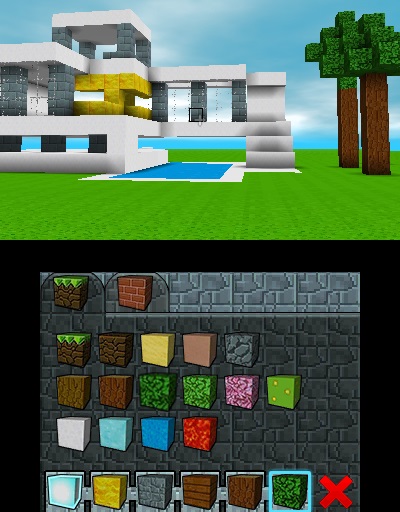
An action game with crafting elements that released in 2015. It was early to the market as far as sandbox games on the 3DS go.
Games that left a lasting impression on players, such as Of Mice and Sand, generally sold well, I think. One that surprised us with how high it ranked is ARC STYLE: Baseball 3D. You might think games with more personality would perform better, but then there’s this conventional sports game. The Family series of games also performed well by selling over a long period of time.
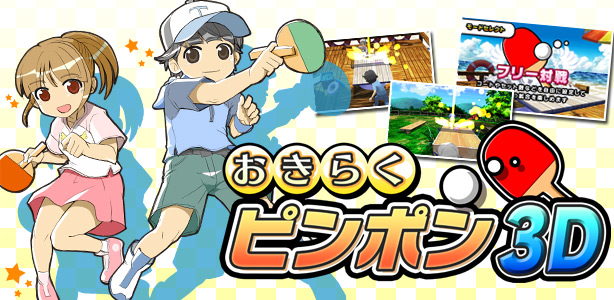
The long-running series started on the Wii in 2008 with Family Table Tennis, and the most recent title Family Tennis SP released on the Nintendo Switch in 2019. The games star a family of 8 who compete in a variety of sports and card games. The selling point is their simple controls which are easy to pick up and play.
――Was Of Mice and Sand influenced by FTL: Faster Than Light?
Shimada:
It was listed as a game to reference during the project proposal phase (laughs).
Yamada:
The original idea started from thinking it would be interesting to have a game about the Jawas from Star Wars traveling around in their Sandcrawler. We were then like “Oh, that’s similar to FTL: Faster Than Light,” and wondered if it would be good to have character control be kind of like Dwarf Fortress.
The River City series and Riki Densetsu
――Riki Densetsu (a Japan exclusive that translates to Legend of Riki) was a spin-off starring a character that wasn’t Kunio which was rare at the time. What led to its development?
River City series producer Takaomi Kaneko:
At the time, River City: Tokyo Rumble and Riki Densetsu were being planned simultaneously. From the first 3DS release, Nekketsu Koha Kunio-Kun Special, Kishimoto who directed the arcade releases in the series was involved. The first game was well received, so we started to consider development on two more games.
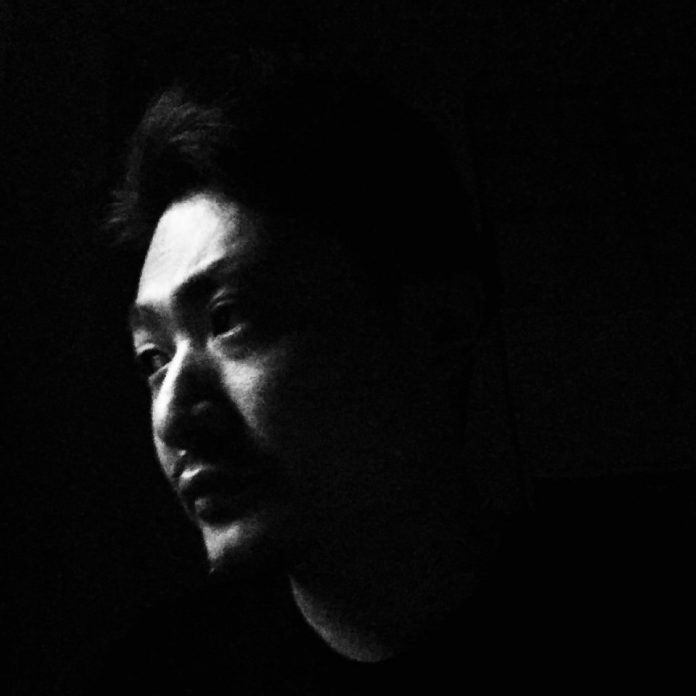
Riki Densetsu was a plan brought in from the just established APLUS, so we entrusted them with making that and River City: Tokyo Rumble which I was planning at the time. It tells the reverse side of the story from the first game Nekketsu Koha Kunio-Kun Special up to where Kunio and Riki fight at Shinjuku Station.
Kishimoto was asked to work on the story, and we arranged it with APLUS while going through development. The music was done by Kazuo Sawa who worked on the River City games for the Famicom back in the day. There was a trend in making live-action adaptations of delinquent manga at the time, so he referenced those and came up with tougher sounding music different from what had been heard in the series up to that point. There wasn’t much budget at the time, so I was in charge of illustrations and UI which APLUS implemented.
――After that, River City: Knights of Justice was released as a download-only title. Was that because Riki Densetsu had a positive reception?
Kaneko:
River City: Knights of Justice was a plan brought by Hiroyuki Sekimoto who made games like River City Ransom on the NES and Avit-Niigata, which was originally Tecnos Japan’s Niigata city office and home to staff that worked on games in the series like Nekketsu Fighting Legend that never left Japan. We didn’t have the license at the time, so we took the project proposal to the license holder, received permission, and made the game.
The license holder opposed and was angry at first, but we were persistent and somehow got consent to move forward with development. Additionally, while we couldn’t expect much from markets outside Japan, we thought it might be easier to sell since it was fantasy rather than being set in a Japanese high school and took on the challenge.
――Swords & Darkness is a fantasy action game that seems like River City, but was there any sense of that? Did it have any influence on the later River City: Knights of Justice?
Kaneko:
Swords & Darkness and River City: Knights of Justice began development around the same time. Since before River City: Knights of Justice, we wanted to try planning an original game after just making River City games and were consistently considering ideas. The development staff consisted of members who worked on Riki Densetsu and River City: Tokyo Rumble.
The content was like a mix of games we liked but with system changes and control methods we couldn’t do with River City.

The budget was extremely low, and development lasted around 4 months after we received permission. Counting myself, there were around three team members. In order to reduce worries about delays, we used the engine we had been using for River City up to that point and explored a setting and story that would allow for graphics to be reused as much as possible.
While it was a small title, it was an original IP and the first title we simultaneously released internationally, so it’s very memorable. It didn’t influence River City: Knights of Justice but happened to be a separate project with a similar motif, development period, and release.
Continuing to develop original titles outside of fighting games
――Arc System Works continuously took on unique challenges with downloadable games on the 3DS. Will those challenges continue going forward?
Shimada:
Of course, we’re going to keep making original titles! There may be a strong impression that we only make fighting games, but we’re making plenty of downloadable games as well like Ground Divers! which recently released.
Related Article:
Ground Divers! developer interview – Arc System Works’ new roguelike strategy game
Shimada:
We also just completed a new game. It’s a mahjong game for the PlayStation 4 where a lot of sexy ladies appear called Two Jong Cell!! Players battle with special abilities for crazy mahjong fun.
We have small and mid-size games, plus there’s the River City series, so we’re making lots of interesting stuff besides fighting games in all sorts of genres. We appreciate your continued support.
――Thank you for your time.
Original Japanese text written by. Futaba Raayu, edited by. Ayuo Kawase
Translated by. Nick Mosier, re-edited by. ryukiishii

